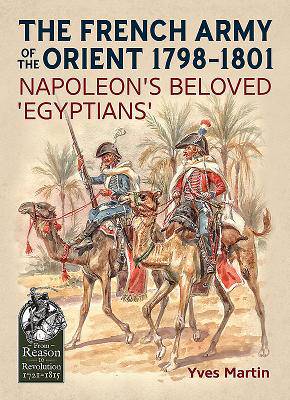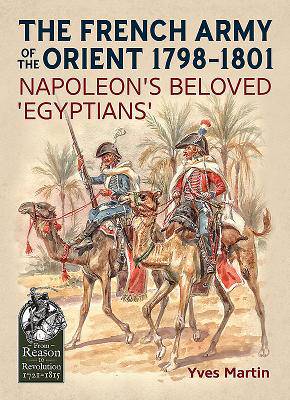
- Afhalen na 1 uur in een winkel met voorraad
- Gratis thuislevering in België vanaf € 30
- Ruim aanbod met 7 miljoen producten
- Afhalen na 1 uur in een winkel met voorraad
- Gratis thuislevering in België vanaf € 30
- Ruim aanbod met 7 miljoen producten
Zoeken
€ 41,95
+ 83 punten
Omschrijving
More than 200 years ago - under the inspiration and leadership of Bonaparte - a revolutionary French Army invaded Egypt, then part of the Ottoman Empire; this presence lasted beyond Bonaparte's own departure and subsequent rise to power as First Consul. It ended with another invasion - this time by the British - and the repatriation in France of what was left of the 'Army of the Orient'. The birth of Egyptology; the rise of modern Egypt; the demise of the Ottoman Empire; and start of 'the great game' have all been often told and studied, but what is less well known is that as the French found themselves stranded in a foreign land - profoundly alien to them in culture and climate - they had to adapt to survive. Egypt was a proving ground for many officers and ordinary soldiers who were to rise to prominence during the Napoleonic period. Some of Napoleon's future inner circle - like Davout, Savary and Lasalle - were first spotted by the young Bonaparte in Egypt, and although initially unplanned as such, it turned out to be the first attempt by the French to build a colony on the African continent. It especially led the French Army to adopt totally new clothing and equipment; to organise native units; and even to draft men from faraway Darfur into its own ranks. Drawing from a wealth of original primary material - much of it never published or even seen before - this study focuses on the French Army of the Orient and its organization, uniforms, equipment and daily life. It aims at providing a renewed and updated image of the French soldier, as told by the surviving archives, memoirs and rare contemporary iconography.
Specificaties
Betrokkenen
- Auteur(s):
- Uitgeverij:
Inhoud
- Aantal bladzijden:
- 160
- Taal:
- Engels
- Reeks:
Eigenschappen
- Productcode (EAN):
- 9781911512714
- Verschijningsdatum:
- 21/11/2017
- Uitvoering:
- Paperback
- Formaat:
- Trade paperback (VS)
- Afmetingen:
- 178 mm x 246 mm
- Gewicht:
- 453 g

Alleen bij Standaard Boekhandel
+ 83 punten op je klantenkaart van Standaard Boekhandel
Beoordelingen
We publiceren alleen reviews die voldoen aan de voorwaarden voor reviews. Bekijk onze voorwaarden voor reviews.











